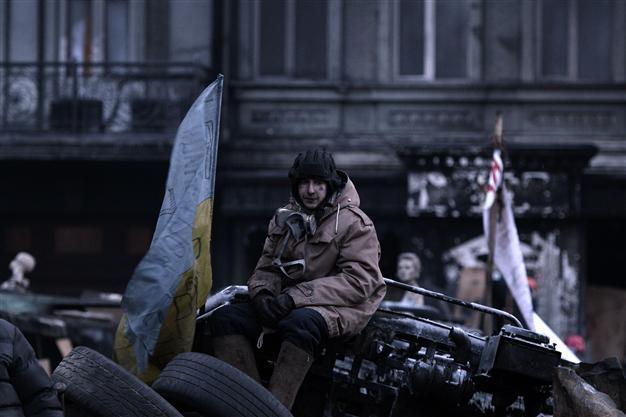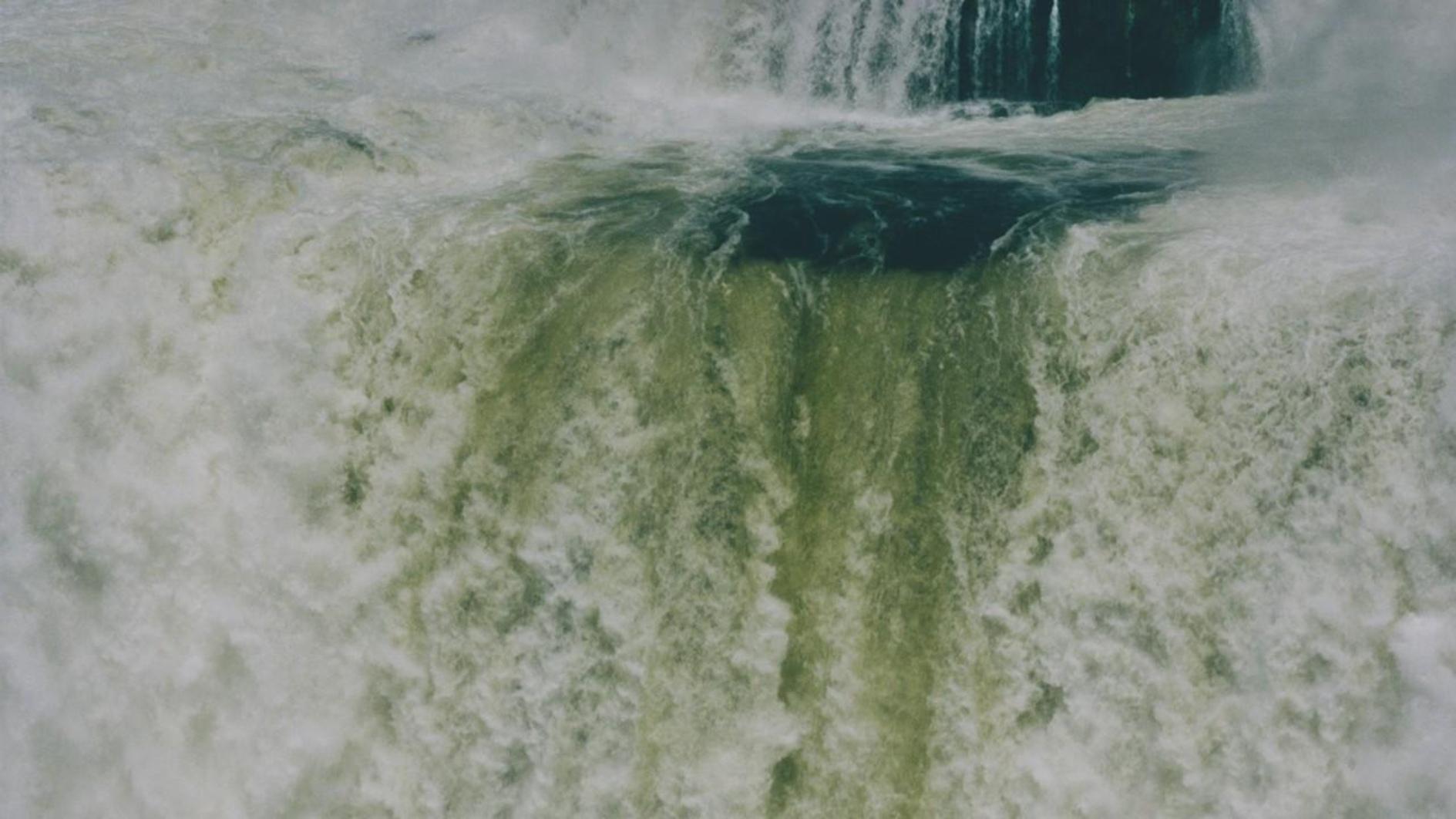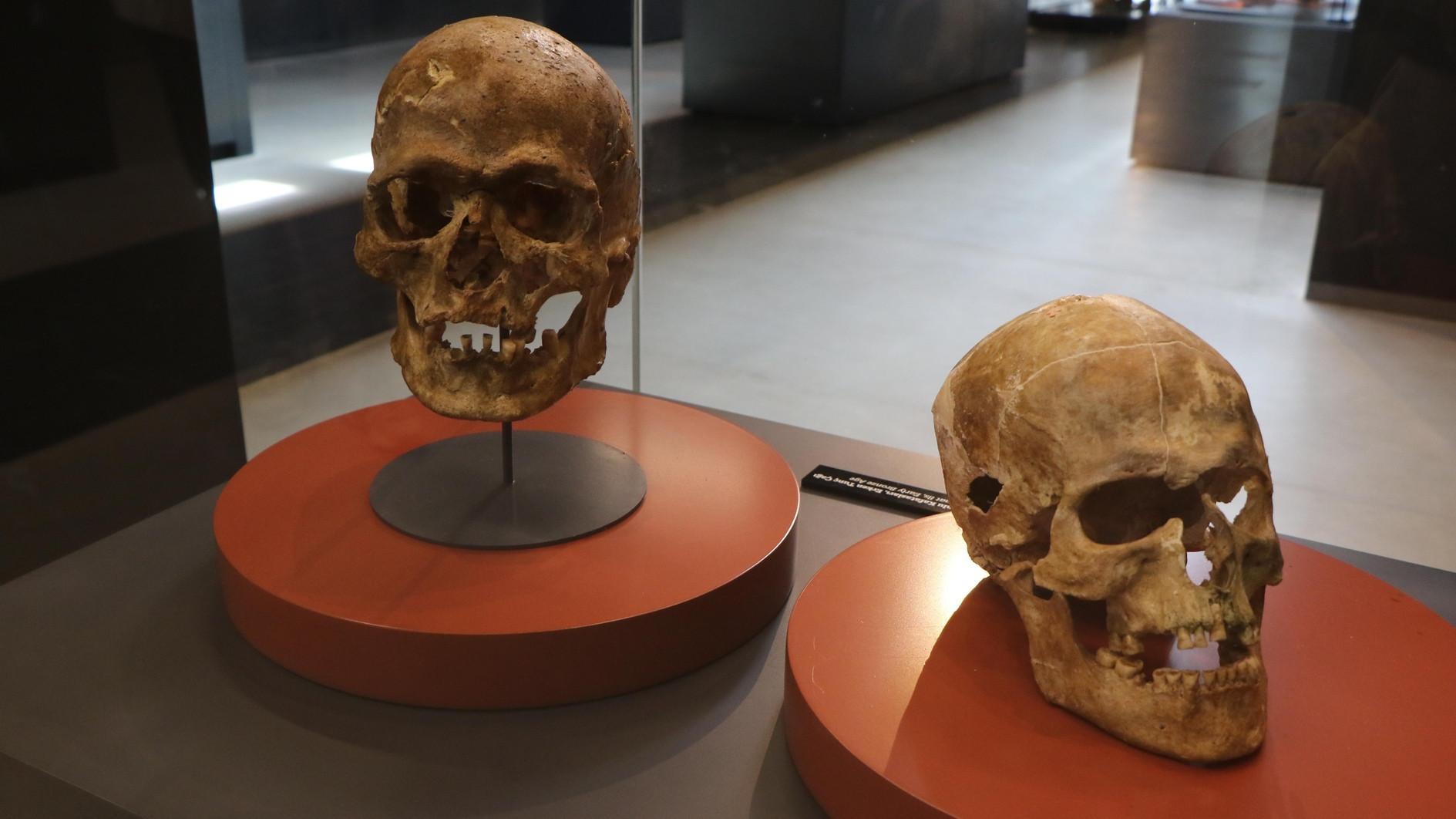Ukraine president accepts resignation of PM, entire cabinet: Official
KIEV - Agence France-Presse

An anti-government protester sits at a road block in Kiev on Jan. 27. AFP photo
Ukrainian President Viktor Yanukovych in a decree on Jan. 28 accepted the offer of resignation from Prime Minister Mykola Azarov and the entire cabinet."I accept the resignation of Mykola Azarov and as a consequence the resignation of the entire Ukrainian government," read the text of the decree published on the presidency website.
He requested they stay on in a caretaker capacity until a new government is named.
Azarov has resigned in a bid to defuse Ukraine's deadly crisis and preserve its unity, finally giving into months of pressure from street protesters.
Azarov said he had taken a "personal decision" to resign to preserve Ukraine's unity as parliament opened a session to vote on reforms and concessions backed by President Viktor Yanukovych.
The European Union and United States cranked up pressure on Yanukovych to impose serious reforms to end a standoff that turned parts of Kiev into a war zone patrolled by masked protesters and left three activists dead.
After a four hour meeting with opposition leaders, the presidency said that controversial anti-protest laws passed on Jan. 16 would be cancelled and amnesty granted for jailed protesters on conditions public buildings and streets were freed up.
EU foreign policy chief Catherine Ashton brought forward a visit to Kiev by several days while US Vice President Joe Biden urged Yanukovych to work with the opposition on "immediate measures" to de-escalate the crisis.
Resignation addresses key demand
In a dramatic morning announcement, Azarov yielded to months of pressure from the opposition who have made his resignation a key demand of protests based on Independence Square in Kiev.
Azarov said that he hoped his resignation would create "an additional possibility for a political compromise to peacefully resolve the conflict."
"The government has done everything during this standoff for a peaceful resolution of the conflict," he said, adding that his cabinet had been forced to work in "extreme conditions."
"Today the most important thing is to preserve the unity and integrity of Ukraine. This is far more important than any personal plans or ambitions. That is why I have taken this decision," he said.
There was no immediate comment from the opposition, with a spokesman for the Fatherland Party telling AFP they were waiting to confirm that Yanukovych would accept the resignation.
The streets of Kiev were calm on Jan. 28 in contrast to days of clashes last week. However the barricades built by protesters out of sandbags and which reach several metres high were still in place with the city centre now clearly divided between areas controlled by protesters and those by security forces.
Members of a radical splinter group of the protest overran the justice ministry building on Jan. 26 but vacated it on Monday after an appeal from opposition leaders.
Western leaders are hoping for a breakthrough at the meeting of the Verkhovna Rada parliament - notorious for fistfights - but opposition leaders were guarded after the latest meeting with Yanukovych.
Fatherland party leader Arseniy Yatsenyuk formally rejected an offer to become prime minister himself, the presidency said. The leader of the UDAR (Punch) party, world boxing champion Vitali Klitschko, said he could not imagine himself in a government under Yanukovych.
The special parliament session in Kiev is expected to debate ways of ending the crisis, including abolishing draconian anti-protest laws that have angered the opposition.
Despite Azarov's resignation, a key sticking point in the negotiations between the opposition and Yanukovych has been the president's own political future.
The opposition says it wants him out before the end of his term next year and radical protesters are pushing to oust him as soon as possible.
The crisis was also due to dominate a summit between the European Union and Russia attended by President Vladimir Putin who will not want the standoff to overshadow the Winter Olympics in Sochi starting February 7.
U.S. Vice President Joe Biden called Yanukovych on Jan. 27 and warned him that "declaring a state of emergency or enacting other harsh security measures would further inflame the situation and close the space for a peaceful resolution." Russia has slammed the protesters as extremists, with Foreign Minister Sergei Lavrov condemning them as "fascistic youth" and warning against outside interference.
















